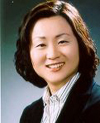
Professor of HSS
Second, as a linguist who is interested in how we, Koreans who are learning English as a foreign language, learn English and how and why we are different from native speakers of English in using the English language, I am convinced that input enhancement is the only way for us to obtain native-like proficiency. In other words, we should read a lot to be a good speakers and writers of English. I said, “I am convinced,” not only because it’s a fact proven fact verified by numerous researchers in the second language acquisition field, but because I personally have experienced the power of reading through ER, I mean by reading extensively.
When I was a graduate student in the U.S., I heard an American student refuse to join a party by saying, “I have to read.” He meant he must study instead of going to party. It was a pleasant surprise to pick up new input in which ‘read’ was interchangeable with ‘study.’
Have you ever thought of how a child acquires her mother tongue? Nobody, including her mother, teaches her how to speak. One day, she just suddenly opens her mouth and says ‘eomma (mother in Korean)’ or ‘appa (father in Korean)’, making her parents think that their child must be a genius. From then on, her language accelerates with gasping speed and she can say everything before her fifth birthday. Besides, there is no one who cannot speak his mother tongue unless he is brain damaged or handicapped. Children achieve uniform success in their native language without learning it.
What about second language learners? Like us who started to learn English in school after learning Korean, our beautiful native language? We should LEARN it and with conscious ATTENTION. It takes a longer time, however, and, worst of all, it seems almost impossible to be like native speakers of English in its command, no matter how we try hard. Why is this so? There are many explanations, such as that there is something in the brain working for learning one’s mother tongue that died and does not function for a second language, or that after some age, native-likeness cannot be achievable. Some say the critical age is as early as three. (We can’t blame some crazy Korean mothers). Irrespective of the true explanation, one thing that is true for sure is that we see ourselves not speaking English as well as we do Korean.
These are all biological barriers that we can’t control, so is this the end of story? No way! Thank God, we still have hope. We human beings are weak to repetition. This means that if we meet something or someone often enough we can’t forget it or that person. Likewise, if we meet English forms often enough, they stick to us. We can’t forget them. The frequent encounter with English is done solely through reading.
If you don’t trust me, I don’t care. But, if you do, go to the English Library, borrow books and read. You will see what I mean.
Soo-Ok Kweon / Professor of HSS
м Җмһ‘к¶Ңмһҗ © нҸ¬н•ӯкіөлҢҖмӢ л¬ё л¬ҙлӢЁм „мһ¬ л°Ҹ мһ¬л°°нҸ¬ кёҲм§Җ


